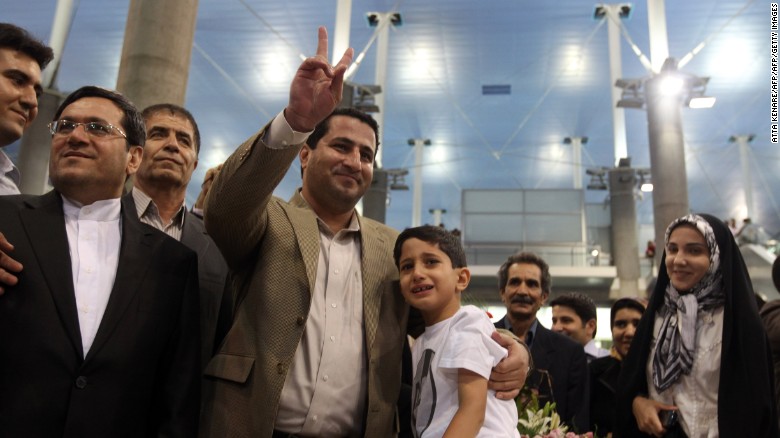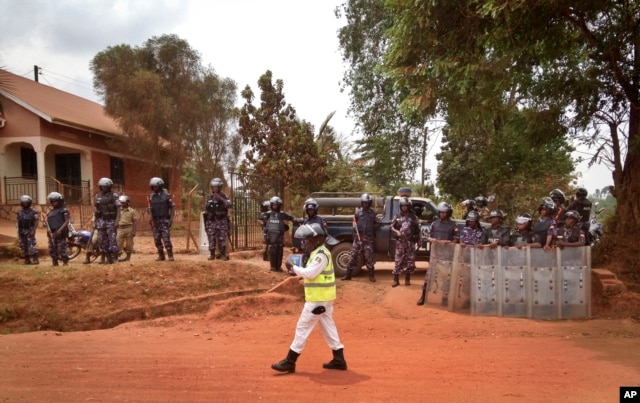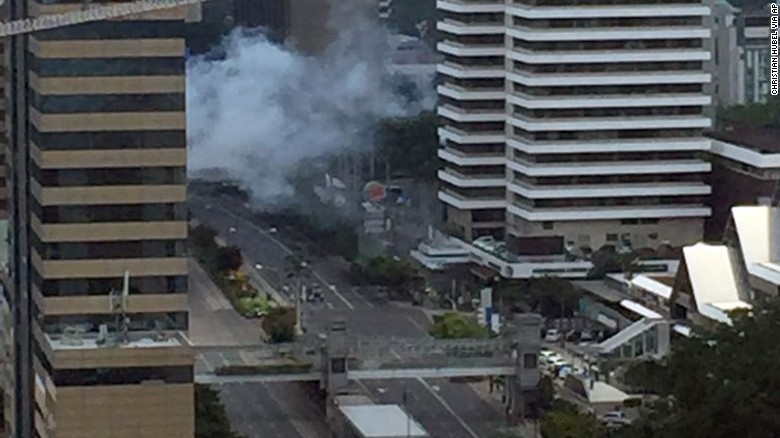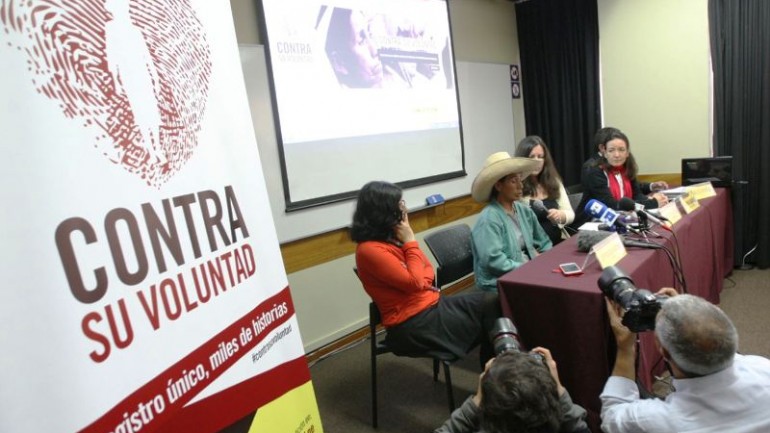|
||||||||||||||||||
|
Uncategorized
Iranian Nuclear Scientist Executed for Espionage
by Zachary Lucas
Impunity Watch Reporter, Middle East
TEHRAN, Iran — An Iranian nuclear scientist was executed after being tried and convicted of espionage and treason. Iranian officials say the scientist gave “vital information” to the United States.

Iranian nuclear scientist, Shahram Amiri, was executed after being in custody for six years by Iranian officials. Iranian judiciary officials stated that Amiri was hung after he gave state secrets away to the United States. Deputy Chief Justice of Iran, Gholam-Hossein Mohseni-Eje’i, said Amiri provided top secret information to the “number one sworn enemy, America.” Amiri’s execution came years after his conviction as it was being reviewed by the highest court in Iran. The court stated they reviewed the case with “extreme care.”
In 2009, Amiri vanished while on a religious pilgrimage to Saudia Arabia. A year later, Amiri turned up in the United States. Iranian officials accused the United States of abducting Amiri while the United States claimed Amiri had defected to undermine Iran’s nuclear program. Amiri, while in the United States, claimed he was kidnapped by the Central Intelligence Agency and later sought asylum at the Pakistani Embassy where he asked to be brought home.
Initially when Amiri returned, he was given a hero’s welcome which was extensively covered in the Iranian media. Amiri claimed he faced “psychological warfare” while in the United States. United States officials state he gave up information voluntarily. Shortly after his return, he was arrested by Iranian officials accused of espionage and treason. There were reports that, while in custody, Amiri was subjected to torture.
Amiri’s mother has stated that her son was unfairly tried and was innocent. Amiri’s mother along with watch groups question the closed-door trial of Amiri. Amiri’s mother claims that he was not given proper representation and was never allowed to talk with his lawyer. Iranian judicary officials have provided no comments concerning the way the trial was handled.
For more information, please see:
BBC — Iranian nuclear scientist Shahram Amiri executed for treason — 7 August 2016
CNN — Iran: Nuclear scientist executed for spying for ‘Great Satan’ U.S. — 8 August 2016
Guardian — Iran executes nuclear scientist who returned to country from US — 7 August 2016
Washington Post — Iran says it executed a nuclear scientist for spying — 7 August 2016
Uganda Election Won With not so Popular Vote
By Tyler Campbell
Impunity Watch Reporter, Africa
KAMPALA, Uganda – It was announced yesterday that Yoweri Museven has been elected to his 5th term in office as Uganda’s President. However, the streets were rather quiet and lacked the celebration that you would expect for someone who won 60.8% of the vote. Instead of supporters filling capitol square to celebrate their re-elected leader armed soldiers and police kept watch silently. While President Museven sat comfortably in the capitol, the leader of the opposition party, Kizza Besigye, was at home under house arrest.

This is the fourth time Besigye had been arrested since voting started. Finally, he was placed under house arrest after trying to enter a home where he believed ballots were being altered. Supporters of Mr. Besigye have also clashed with Ugandan police forces since voting began Friday. Police forces and Besigye followers traded rocks and teargas canisters thought the capitol city after the election was called for President Museven with just over 10% of the polls reporting.
Mr. Besigye has officially called for an independent audit of the election in an open letter he sent to the people of Uganda on Saturday. Besigye commented on the election calling it “stolen” and “what must be the most fraudulent electoral process in Uganda.”
Mr. Besigye and his supporters do seem to have good reason to be upset. During the election social media sites were blacked out along with mobile-money services. Urban areas that were expected to be heavily in favor of Besigye did not receive their ballots until late in the day. This led to lower voter turnout and ended with some citizens not getting to vote at all. Finally, there were reports of ballots arriving at polling stations that had already been marked for President Museven.
The European Union Election Observation Mission (EU-EOM) were in attendance at the election and do not claim to have seen this level of fraud, but stopped short of calling the election free and fair. The EU-EOM reported that there was great enthusiasm to go out and vote but also admitted that this enthusiasm was over shadowed by intimidation and a lack of transparency.
For more information, please see:
The Guardian – Uganda election victory extends Yoweri Museveni’s grip on power – 20 Feb. 2016
Al Jazeera – Uganda’s Museveni re-elected amid controversy – 20 Feb. 2016
All Africa – Uganda: Poll Observers Give Mixed Verdict – 21 Feb. 2016
The Economist – Yoweri Museveni wins a fifth term as Uganda’s president – 21 Feb. 2016
Indonesian Capital Rocked By Deadly Terrorist Attack
By Samuel Miller
Impunity Watch Reporter, North America and Oceania
JAKARTA, Indonesia — At least six people are reported dead in a suspected series of bombings and gunfire outside the Sarinah department store on Jalan M.H. Thamrin in Central Jakarta on Thursday. Islamic State (“IS”) said it was behind the attack, the first time the radical group has targeted the world’s most populous Muslim nation.

Security forces battled militants for hours in a major business and shopping district.
The mayhem began with a suicide blast at a Starbucks while gunmen outside opened fire, killing a Canadian man, said Jakarta’s police chief, Maj. Gen. Tito Karnavian. Moments later, two suicide bombers struck a traffic police post, killing themselves and an Indonesian man.
Security forces later put the streets on lock-down, including areas near the U.S. and French embassies and other diplomatic sites. At the Starbucks, six hand-crafted explosive devices were found stashed.
“So we think … their plan was to attack people and follow it up with a larger explosion when more people gathered,” said Charilyan. “But thank God it didn’t happen.”
IS released a statement online claiming the attacks, which it said were carried out by soldiers of the Caliphate, targeting citizens of the Crusader coalition against the group. “A group of soldiers of the caliphate in Indonesia targeted a gathering from the crusader alliance that fights the Islamic State in Jakarta,” the group said in a statement.
Several explosive devices were planted, while four militants attacked with guns and explosive belts, the jihadist group said in a statement. According to IS, 15 people were killed in the attack, a claim that contradicts the Indonesian government’s official death toll of seven people.
Mr. Karnavian also blamed the terrorist group and singled out a militant named Bahrun Naim, who he said plotted the attack to assert himself among various figures competing to lead ISIS in Southeast Asia.
The Jakarta carnage, in an area frequented by foreigners, came 6,000 miles from and two days after ISIS boasted about a suicide bombing in the heart of Istanbul. CNN security analyst Bob Baer likened the Jakarta attack to the November 13 Paris massacre, in which terrorists linked to ISIS struck several locations at the same time.
A spokesman for Indonesia’s national police, Maj. Gen. Anton Charilyan, issued a statement concerning the assailant’s plans. “So we think … their plan was to attack people and follow it up with a larger explosion when more people gathered,” said Charilyan.
“But thank God it didn’t happen.”
For more information, please see:
BBC News – Jakarta attacks: Islamic State says it was responsible – 14 January 2016
CNN – Jakarta attacks: Deadly blasts, shootout hit Indonesian capital – 14 January 2016
Reuters – Islamic State claims Jakarta attack, targets Indonesia for first time – 14 January 2016
Russia Today – Suspected ISIS attacks in Jakarta – 14 January 2016
NY Times – Jakarta Attack Kills at Least 2, Indonesian Officials Say – 14 January 2016
Peru Investigates Forced Sterilizations
The Peruvian government is investigating the forced sterilizations programs of the 1990s. The program was carried out mostly during 1997 and 1998 under the leadership of President Alberto Fujimori. It is estimated that between 250,000 and 350,000 women and 20,000 men were forcibly sterilized during the program.

State prosecutor Luis Antonio Burgos ordered the reopening of the criminal investigation into the matter back in May, the third time the investigation has been reopened since 2009. A 2014 investigation was closed due to a lack of evidence. The current investigation will allow the oral testimony of affected women into evidence.
The Peruvian ambassador to the Organization of American States has recently committed to the Inter-American Commission on Human Rights that the government will be launching a full investigation into the programs.
The move comes in response to a recent campaign launched by Amnesty International – “Against Her Will” – which demands the government create a national register of victims. Peru’s forced sterilization program is said to be the most “emblematic” in Latin America, according to Amnesty International Americas director Ericka Guevara.
The programs were mostly carried out in rural areas of the country, and targeted poor and indigenous communities. Some victims were lured in to clinics with promises of food and medical care, while others were threatened with fines and jail time. Many women suffered medical issues as a result of the procedures such as back and abdominal pain as well as psychological trauma. A number of women also died from botched sterilizations.
Fujimori’s government promoted the program as a way to reduce the birthrate among poor and indigenous populations to reduce poverty rates in the country. Fujimori was imprisoned in 2007 on corruption and human rights abuses. He has claimed that the sterilization program was voluntary.
For more information, please see:
TeleSur – Peru’s Indigenous Women Demand Justice for Forced Sterilization – 22 October, 2015
Peru Reports – Peru to investigate government’s forced sterilizations program – 27 October, 2015
Prensa Latina – Ex Peruvian President Fujimori may Face Another Trial – 27 October, 2015
Amnistia Internacional – Contra Su Voluntad – 2015




